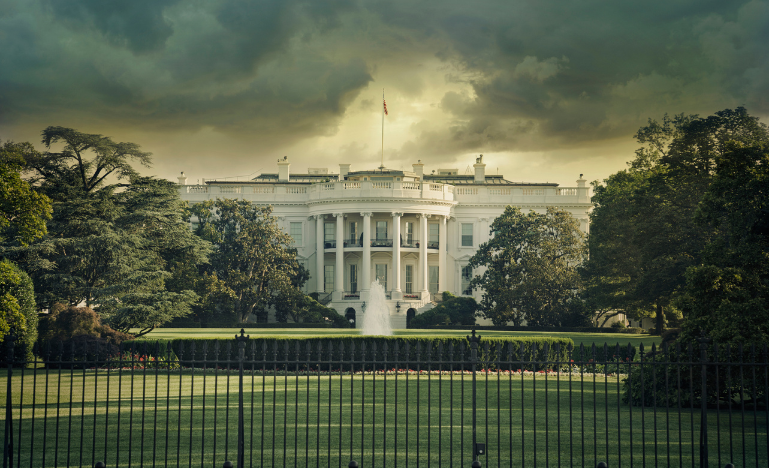Canada gears up to respond to Trump’s threats
The incoming president has spewed contempt, insults and lies across the border ahead of taking office for a second time while positioning for a trade war

As Donald Trump returns to the White House, Raymond Chrétien says 2025 will be “unpredictable, chaotic, incredible.”
While Trump is repeating the behaviour of his first mandate and will continue to do so, Canada’s former ambassador to the United States, who is now with Fasken Martineau DuMoulin, admits “we don’t know what to expect” once he’s back in power.
In an interview with Radio-Canada last week, Chrétien suggested Trump would impose tariffs on Canada “Monday or soon after.” On what products and at what level remains to be seen.
“We have never seen such contempt,” he said, calling Trump’s repeated references to Canada as the 51st state “insulting.”
Chrétien recalled previous trade talks with the U.S. as civil, even though Canada clearly was the junior partner to the American superpower.
He said that in talks with the Americans, Canada must be “more competent, more flexible” and well prepared, with all the tools of diplomacy and the support of a united Team Canada, not only of politicians but also of athletes and other Canadians who have the chance to pass along Canada’s message.
For trade lawyer Martha Harrison, a partner with McCarthy Tétrault in Toronto, signs from south of the border are that Canada, the United States and Mexico are heading into a trade war.
“I think that, ultimately, there will likely be a way for all three parties to work through this fog. But my concern is that it's going to be a painful task getting there,” she says, noting that the Canada-United States-Mexico Agreement (CUSMA) is up for renegotiation next year.
“That's a long time for a trade war. It’s a long time for damage to supply chains, which has not only economic effects.”
Harrison says tariffs and other trade measures could spur inflation, which could impact jobs, security, and foreign policy. Therefore, it’s important that this be the priority of all three countries going into “the next 20 days after the inauguration.”
She hopes there will be some clarity sooner rather than later regarding what the Trump administration will actually do. It's possible any tariffs imposed could be less than the talked-about 25 percent, with exemptions for energy exports that are crucial to the U.S. economy.
“There are all sorts of things to be considered, but based on what Prime Minister (Justin) Trudeau has said, Canada is not going to show its hand in terms of countermeasures before we understand what's actually going to take place,” Harrison says.
“You don't bet against yourself in a trade war. You have got to be patient and strategic.”
In December, Ottawa announced a $1.3 billion allocation to strengthen border security, a Trump priority in proposing the tariffs. She says this could offer him “a win for his constituents.”
In Canada’s trade toolbox are export tariffs, quotas on exports, retaliatory tariffs, and some form of surtax. Harrison, however, isn’t on board with Ontario Premier Doug Ford’s proposal for a U.S.-Canada trade agreement, excluding Mexico, which China is now using as an access point to the U.S. market.
“CUSMA, and its predecessor NAFTA, has actually created a streamlined economy between the three countries, which it was designed to do,” she says.“It was designed to create opportunities for businesses and for governments, for the three governments to leverage all three countries in their supply chain management, whether that's production, importing and exporting.”
While Trump seems to favour the trade barriers of 17th-century mercantilism and economic nationalism, Harrison says that “free and liberal trade actually increases economic life within national borders.”
Last week Prime Minister Trudeau met with Canada’s 13 provincial and territorial premiers to talk strategy.
“This is an opportunity for Canadians to stand up and be proud,” said Ontario Premier Doug Ford, who showed up at the Council of the Federation meeting wearing a blue ball cap that declared, “CANADA IS NOT FOR SALE.”
He has said the Trump tariffs threaten the livelihoods of all Canadians, including 500,000 jobs in his province, where the auto industry is concentrated. Quebec Premier François Legault estimates 100,000 Quebec jobs in aerospace would be affected.
“I’m going to fight…We’re going to be united,” Ford said, alluding to the strategies the first ministers, minus Alberta’s Danielle Smith, agreed to in response to the 25-per-cent tariffs Trump has threatened on all Canadian goods.
Ford noted that leaders from the three national parties—Conservative, Liberal, and NDP—agreed on a “Team Canada” approach to retaliating if Trump imposes the tariffs, adding that in the U.S., Republicans and Democrats would never sit down like this together.
“We have excluded nothing,” Legault said when asked for details on the first ministers’ strategy.
The federal government plan calls for compensating industries and regions hurt by U.S. tariffs, “protecting Canadians every step of the way,” said Trudeau, who on Thursday announced his 18-member Council on Canada-U.S. Relations, comprised of former premiers, ambassadors and trade negotiators, to business and union leaders, and including Canada’s current ambassador in Washington Kristen Hillman.
Trump has said the U.S. “subsidizes” Canada by as much as US$200 billion a year. The reality is Canada had a modest US$75 billion trade surplus with the U.S. in 2023.
Former prime minister Stephen Harper told a U.S. podcast that he was “shocked” by the things Trump has been saying about Canada.
“They’re just not so,” he said, attributing the “modest trade surplus” to Canada’s oil and gas sales to the U.S. “at a discount.”
Harper added: “It is actually Canada that subsidizes the United States in this regard.”
In an interview with Montreal’s La Presse, Bob Rae, Canada’s ambassador to the United Nations, said Trump’s tariff threats and territorial ambitions are “not normal.”
“It is not permitted in the UN Charter to even threaten another state, and that is what he is doing.”


